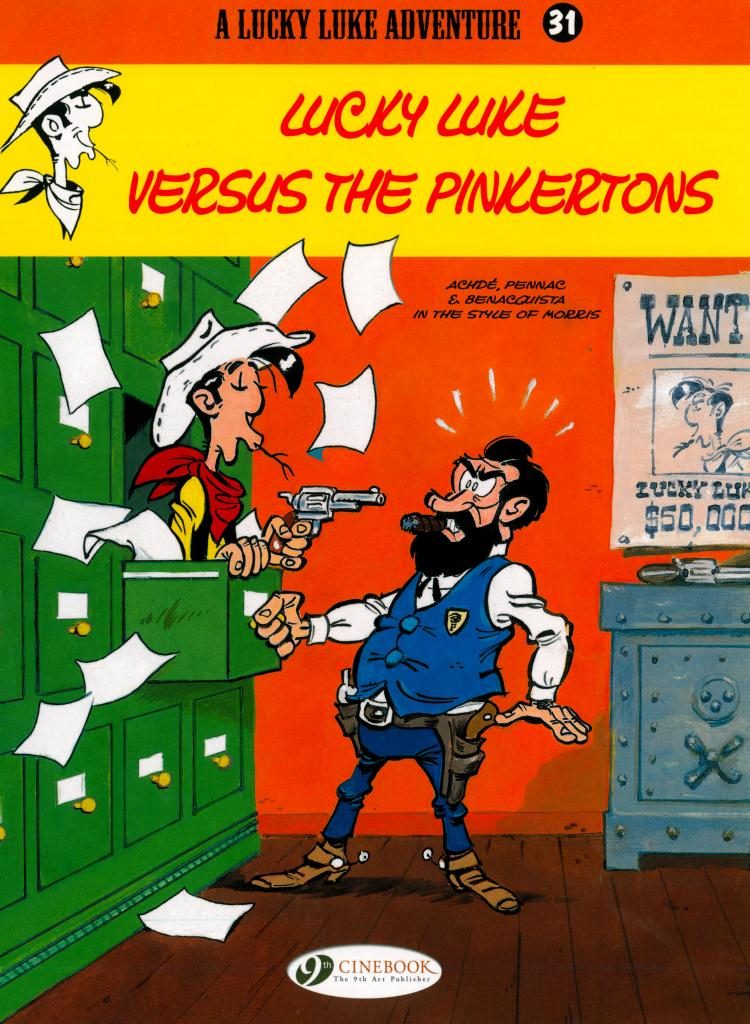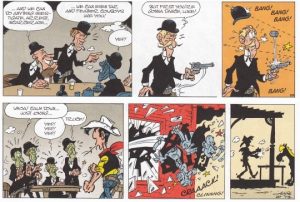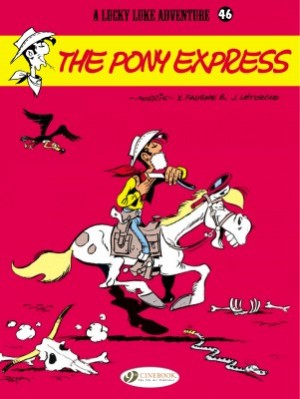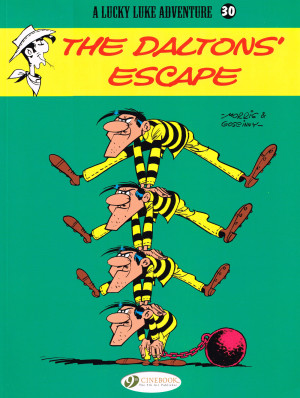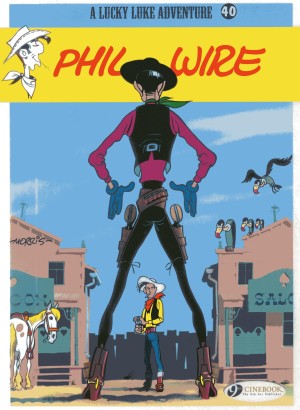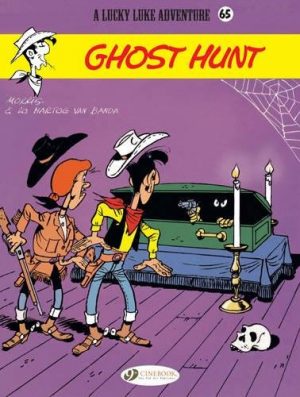Review by Jamie McNeil
It’s a long standing tradition of the Lucky Luke books to feature historical figures from the days of the ‘Wild West’. In both Morris’ and later writing partner René Goscinny’s time, these tended to be cameos to facilitate the plot or just poke fun at history, and Lucky Luke Versus The Pinkertons is in that vein, but the historical figures drive the plot in what is tonally a very different Luke story.
Good ol’ Lucky Luke finds himself retired from crime fighting thanks to the fastidious efforts of Allan Pinkerton and his Pinkerton Detectives. They’ve rounded up all the criminals – and those who might become criminals – including the Dalton Gang. Now the prisons are filled to overflowing, but is it really necessary? Luke is a little concerned about Pinkerton’s questionable methods of crime fighting, so he decides he will be keeping an eye on the Watchmen. Pinkerton has ambition and powerful friends, but with that comes dangerous enemies, and you should never underestimate or enrage your enemies, especially if it’s Joe Dalton and his brothers. It looks like Luke might have to cut his retirement short.
The writing duo of Daniel Pennac and Tonino Benacquista base their story partly on Allan Pinkerton, founder of the Pinkerton National Detective Agency, and the events of the Baltimore Plot of 1861. This was a key event in the days leading up to the American Civil War and one Pinkerton was involved in. He’s an interesting and controversial figure, a man of stark and extreme contrasts whose methods of protecting the ‘greater good’ would be frowned on in the 21st Century, although possibly not that much because Pennac and Benacquista use Pinkerton to draw comparisons to 21st Century events. At the time of writing a number of organisations, individuals and governments were in the spotlight for breaching civil liberties, and Chelsea Manning was in the news for leaking classified information to Wikileaks. When The Pinkertons was released in English, that same year saw the Leveson Enquiry into the News International phone hacking scandal. It might be coincidence but it is a very sobering coincidence. As such it reads far more like a political satire or social commentary than anything Morris or Goscinny ever produced. The humour’s there, but it’s a very dark humour, the dialogue sounding aggressive and feeling intimidating. There’s a sharp sense of angst and cynicism, accentuated by some superb artwork by Morris’s successor Achdé, and a great blend of the simple and complex details, letting the one compliment the other, while his elegant use of shadows sets a suspicious undertone and accentuates the macabre humour. The historical figures share the likeness of their real-life counterparts, and a lot of humorous detail is hidden in the panels.
Lucky Luke Versus The Pinkertons is not your average Lucky Luke tale, barely containing it’s moral outrage. It won’t be to everyone’s tastes, the laughs coming from a bleak subject, but it is well written and well presented, prompting thought about the content. In Cinebook chronology the next outing is Rails on the Prairie.
